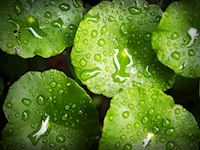Propagation I - Endorsed Certificate Course (TQUK - Training Qualifications UK)
Distance learning course with study materials, tutor support and final exam included
Academy For Distance Learning
Summary
- Exam(s) / assessment(s) is included in price
- Tutor is available to students
Add to basket or enquire
Overview
Propagation I Online Course.100 Hours Endorsed Certificate Course (TQUK - Training Qualifications UK).
This is a foundation course in the Propagation plants. In this module you'll learn how to propagate plants and develop broad skills in this subject. Plants are propagated both sexually (from two parents eg. seed & spore) and asexually (from two parents eg. cuttings, grafting, layers, division). This course deals with the principles of propagation, and all of these methods; as well as materials and equipment. This is a module from the accredited RHS Diploma and provides credit toward IARC accredited diplomas offered by ADL.
Benefits of an ADL Endorsed Course?
Endorsed courses are skills based. They have been evaluated and approved by an independent awarding body such as Training Qualifications UK (TQUK).
What makes ADL’s Endorsed courses different?
- Flexible Self-Paced Learning– adjust your learning around your home and work commitments
- Start and Finish at any time
- Courses globally and industry relevant
- Practical Component at the end of most lessons.
Allocated your own tutor relevant to your subject. You can have as little or as much contact as you like with your tutor. They are there to support you all the way through.
This course is endorsed by TQUK -Training Qualifications UK, an OFQUAL awarding body.
Achievement
Course media
Description
Lesson Structure:
1 Introduction to Propagation
- Asexual and sexual propagation
- Aseptic Micropropagation, Runners, Suckers, Layering, Separation, Division, Grafting, Budding, Cuttings, Seed
- Genotype versus Phenotype
- Plant life cycles -phases of the sexual cycle; phases of the asexual cycle
- Annual, Perennial, Biennial Life Cycles
- Propagation Terminology
- Nursery production systems
- Operational Flow Chart for Seed Propagation
2 Seed Propagation
- Seed Sources
- Maintaining Genetic Identity of Seed -Isolation, Rogueing, Testing, Hand Pollination
- Hybrid Seed Production
- Storing Seed
- Types of Seed Storage
- Seed Biology -Endospermic, Non Endospermic
- Dormancy Factors Affecting Germination
- Germination Treatments -boiling water, stratification
- Terminology
- Seed Raising Technique
3 Potting Media
- Characteristics of Potting and Propagating Media
- Media derived from rock or stone
- Media derived from synthetics
- Organic Media
- Soil Media
- The UC System
- Chemical Charagteristics -eg. pH, Cation Exchange Capacity, Salinity, Conductivity
- Laboratory Testing of Media
- Physical Characteristics
- Potting Mixes
- Propagating Media
- Nutrition at the Propagation Stage
- Nutrition Management and Fertiliser Application
4 Vegetative Propagation I
- Reasons to propagate by cuttings
- Types -softwood, hardwood, semi hardwood, herbaceous
- Stem Cuttings, Tip, heel, nodal, basal
- Leaf and Leaf-bud cuttings
- Cane cuttings
- Root Cuttings
- Bulb Cuttings
- Hormone Treatments for Cutting Propagation
- Other Cutting Treatments; basal wounding, anti-transpirants, fungacides, disinfectants, mycorrhyza, etc
- Artificial Light for Propagation
- Cutting Propasgation Efficiency
- Rockwool Propagation
5 Vegetative Propagation II
- Care of stock plants
- Layering
- Division
- Terminology
- Managing Watering
6 Vegetative Propagation III
- Terminology
- Budding and grafting
- Reasons for Grafting
- How a Graft forms
- Grafting Techniques; Types of Grafts
- What Plant to Graft on What
- Grafting Materials
- Root Grafting, Bench Grafting, Soft Tissue Grafting
- Establishing Rootstocks
- Tissue culture: Applications, Problems, Nutrient Media, Cleanliness, Growing Conditions
- Tissue Culture Procedures and Techniques
- Laboratory Requirements
- Terminology
- Biotech applications in Horticulture
7 Propagation Structures and Materials
- Growing in a Greenhouse
- Growing Structures: Types of Greenhouses, Cold Frames, Shadehouses
- Propagating equipment -Heaters, Bottom Heat, Misting, Light Control, Benches etc
- Managing a Greenhouse
8 Risk Management
- Nursery hygiene
- Risk assessment and management
- Safety -tools, equipment handling, electricity, etc
- Pest and Disease Management
- Environmental Problems and management
9 Nursery Management I
- Plant modification techniques
- Management policies
- Keeping Propagation Records
- Nursery Production Systems
10 Nursery Management II
- Nursery Standards: Cost Efficiency (Cost of Production, Profit, Sales Price), Quality Standards, Size Standards, Practical Exercise
- The Nursery Site: Size, Planning Restrictions, Site Characteristics, Location
- Designing Facilities in the Nursery: Administrative Offices, Circulation and Parking, Employee Facilities, Chemical Storage, Drainage Network, Production Areas, Storage Areas.
Each lesson culminates in an assignment which is submitted to the academy, marked by the academy's tutors and returned to you with feedback, any relevant suggestions, comments, and if necessary, extra reading.
Who is this course for?
Gardening Enthusiasts, Home Gardeners, Landscapers, Garden Designers
Requirements
A pc or laptop with internet connection
Career path
Studying horticulture creates a world potential for every nature lover in search of a career. Plants are one of the most important organisms in our world. We eat them, we grow them, we use them for ornamentation and even medicine.
Questions and answers
Currently there are no Q&As for this course. Be the first to ask a question.
Reviews
Currently there are no reviews for this course. Be the first to leave a review.
Legal information
This course is advertised on reed.co.uk by the Course Provider, whose terms and conditions apply. Purchases are made directly from the Course Provider, and as such, content and materials are supplied by the Course Provider directly. Reed is acting as agent and not reseller in relation to this course. Reed's only responsibility is to facilitate your payment for the course. It is your responsibility to review and agree to the Course Provider's terms and conditions and satisfy yourself as to the suitability of the course you intend to purchase. Reed will not have any responsibility for the content of the course and/or associated materials.





